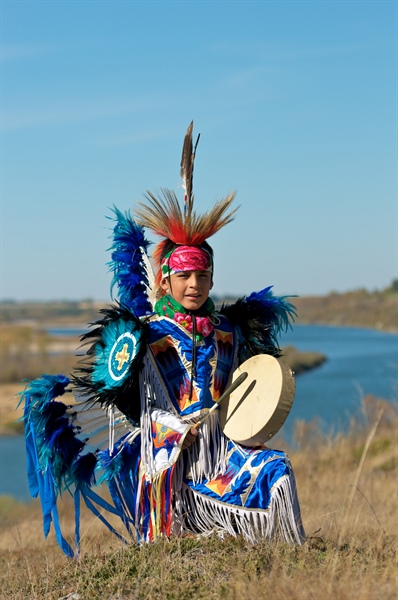
The Indian Child Welfare Act (ICWA) was enacted by Congress in 1978 in response to the alarming number of American Indian and Alaska Native children who had been removed from their families and placed in non-Indian homes, isolated from their tribe, their history, and their culture.
ICWA was created in response to a crisis affecting American Indian and Alaska Native children, families, and tribes. Before the law was passed, according to the National Indian Child Welfare Association, 25-35 percent of all Native American children were being removed from their homes and, of those, 85 percent were placed outside of their families and communities, even when relatives were available.
Before 1978, American Indian children were removed from their families, tribes, land, and culture and placed in boarding schools, foster homes, and adoptive placements with non-native families. These actions caused irreparable harm to Indian children, families, and tribes by separating children from their history and culture. Indian children died in boarding schools. Families were torn apart. Tribes lost their most important resource, their children.
ICWA was enacted to try to remedy the devastating impact these historical practices were having on Native American children, families, and tribes.
ICWA states: “It is the policy of this Nation to protect the best interests of Indian children and to promote the stability and security of Indian tribes and families by the establishment of minimum federal standards for the removal of Indian children from their families and the placement of such children in foster or adoptive homes which will reflect the unique values of Indian culture, and by providing for assistance to Indian tribes in the operation of child and family service programs.” 25 USC § 1902.
As such, ICWA created higher standards for required efforts by state child protection agencies to avoid the removal of American Indian and Alaskan Native children from their homes and to reunify them with their families. Placement preferences for foster care and adoption were also established to emphasize family, culture, community, and tribes.
In June 2016, the United States Department of the Interior’s Bureau of Indian Affairs released new regulations governing state court and agency child custody proceedings to ensure uniform compliance with the Indian Child Welfare Act of 1978. The new regulations took effect in December 2016.
ICWA withstood a constitutional challenge in the 2023 United States Supreme Court case of Haaland v. Brackeen, 599 U.S. 255 (2023). Thus, ICWA remains federal law applicable in Montana dependent neglect (DN) cases.
Additionally, in 2023, the Montana Legislature passed the Montana Indian Child Welfare Act (MICWA), which became law when signed by the Governor. MICWA is a state version of ICWA that reflects the ideals and principles of the federal ICWA. In some cases, MICWA expands upon and clarifies the principles outlined in ICWA. In 2025, MICWA was extended indefinitely, demonstrating the importance of ICWA’s goals to the people of Montana. Title 41, Chapter 3 Child Abuse and Neglect, Part 13 Montana Indian Child Welfare Act, MCA.
While some progress has been made, there remains a great deal of work to be done to meet the goals of ICWA. Native American children in Montana and throughout the United States continue to be removed from their homes at a rate far higher than the general population. Nationally, an American Indian or Alaska Native child is more than twice as likely to be removed as a child from the general population. In 2023, American Indian children made up about nine percent of the child population in Montana but were more than one-third of the children in foster care. https://cwoutcomes.acf.hhs.gov/cwodatasite/pdf/montana.html
To learn more about ICWA, please go to cip.mt.gov and click on the “E-Learning Courses” icon. There, you will find two online courses about ICWA. One is called ICWA Basics and the other is about Qualified Expert Witnesses. Additionally, a link is provided below to access a Montana ICWA Guide, which provides additional details about ICWA and MICWA.
Guide To ICWA Basics
ICWA Community of Practice (CoP)
- Imperatives for Practice
- October 16, 2025: ICWA CoP Meeting 13 - Carrying Wisdom Forward: Strengthening ICWA Together
- August 21, 2025: ICWA CoP Meeting 12 - Building Our ICWA Imperatives
- June 19, 2025: ICWA CoP Meeting 11 - Storytelling for Deeper Understanding
- April 17, 2025: ICWA CoP Meeting 10 - Choosing the Work Ahead: Priorities, Power, and Connection
- February 20, 2025: ICWA CoP Meeting 9 - Sightlining 2025
- December 19, 2024: ICWA CoP Meeting 8 - Special Guests: Sheri Freemont & Vivek Sankaran
- October 17, 2024: ICWA CoP Meeting 7 - Setting the Stage for Compassion
- August 15, 2024: ICWA CoP Meeting 6 - Active Efforts & Resource Collecting and Sharing
- April 18, 2024: Guest speaker Sheldon Spotted Elk, attorney, Casey Family Programs, and member of Northern Cheyenne Tribe
- February 22, 2024: Guest speaker Kyle Spang, lived experience expert, Billings Urban Indian Health and Wellness Center, first graduate of the Yellowstone County ICWA Recovery Court, and member of the Northern Cheyenne Tribe
- December 18, 2023: Refining purpose statement of CoP
- October 2, 2023: Kick-off meeting with Shannon Patterson of Connection Works, and Andy Yost of the Capacity Building Center for Courts
More Links
Documents to Download
Montana’s Indian Nations
- Blackfeet Nation – www.blackfeetnation.com
- Crow Nation – crow-nsn.gov
- Confederated Salish & Kootenai Tribes - csktribes.org
- Fort Belknap Indian Community – ftbelknap.org
- Fort Peck Assiniboine and Sioux Tribes – fortpecktribes.org
- Little Shell Chippewa Tribe – montanalittleshelltribe.org
- Northern Cheyenne Tribe – cheyennenation.com
- Chippewa Cree Tribe - facebook.com/ChippewaCree